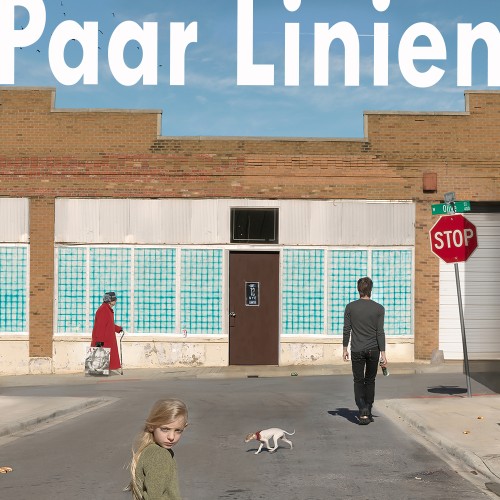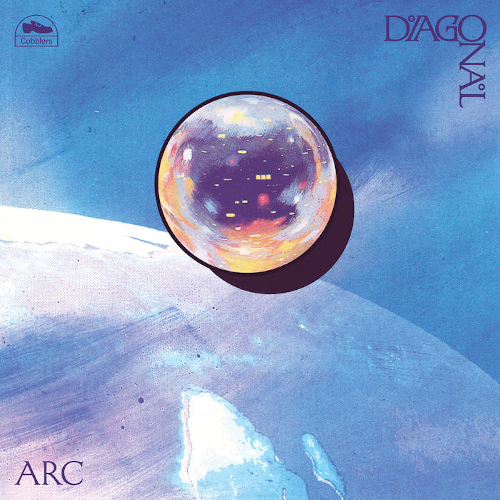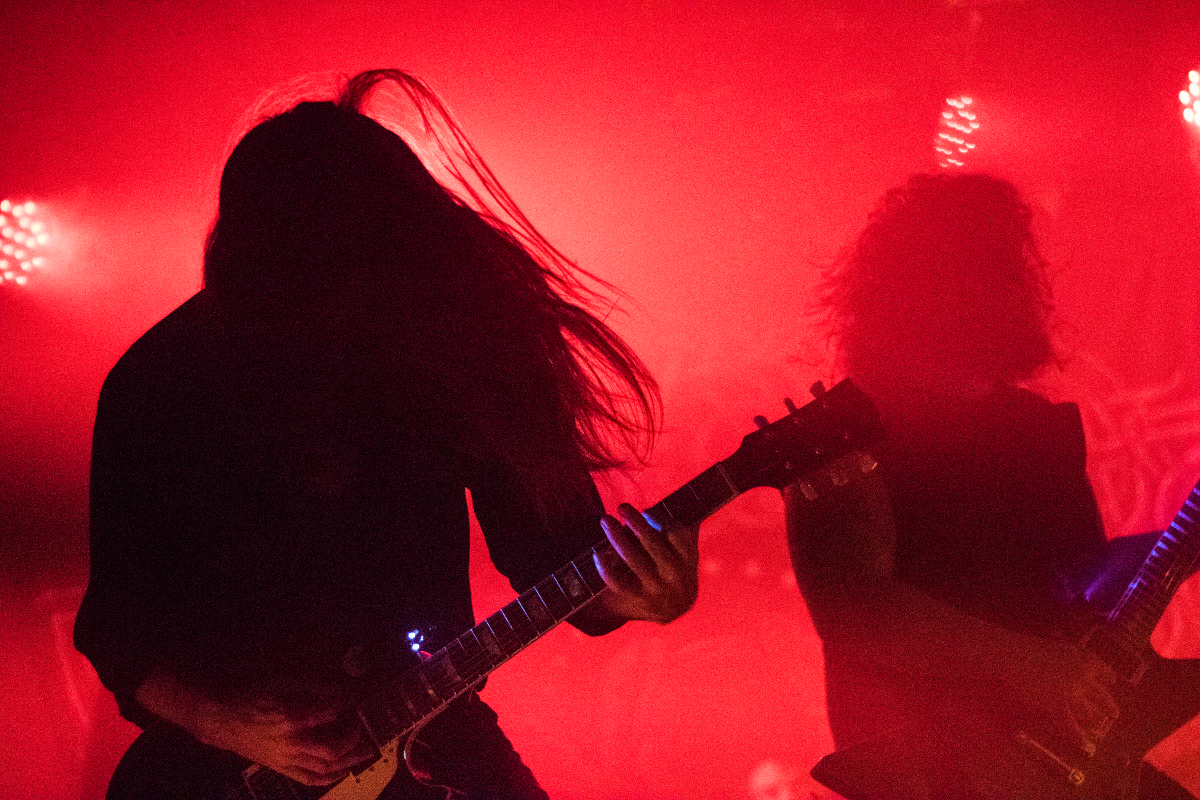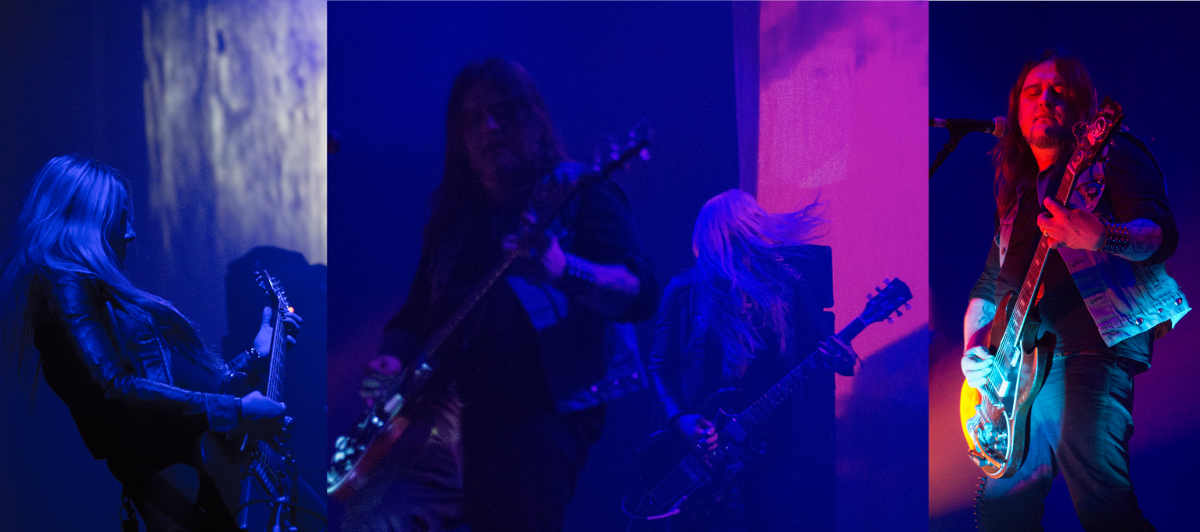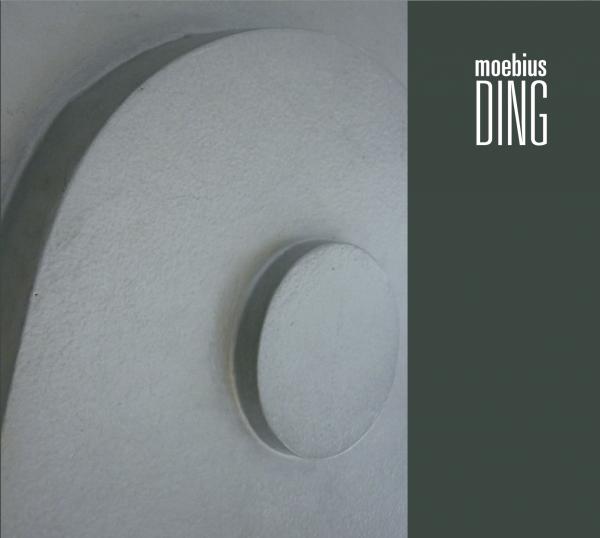 In The Brain of Moebius, Moebius – his mind now encased in a hairy Frankenstein-style monster body – responded to taunts from Conrad Schnitzler, and the two Kraut Lords battled it out in a mind-bending contest which saw Moebius eventually chased out onto the mountains, plummeting over the cliffs to his doom…
In The Brain of Moebius, Moebius – his mind now encased in a hairy Frankenstein-style monster body – responded to taunts from Conrad Schnitzler, and the two Kraut Lords battled it out in a mind-bending contest which saw Moebius eventually chased out onto the mountains, plummeting over the cliffs to his doom…
Now I admit I could have that wrong. It’s possible that 1971 in fact saw Schnitzler part company with Moebius (and Hans-Joachim Roedelius) quite amicably, leaving their band Kluster, which had recorded three milestone recordings since their formation in 1969 – Schnitzler for a low-profile but startlingly innovative solo career, and the remaining duo to reconfigure as Cluster and produce some of the stand-out German recordings of the 1970s. And the mind-bending content? Hmm, that might actually have happened five years later to Tom Baker on the planet Karn.
Forty years later though, and Dieter Moebius has travelled the time ways almost as much as the Fourth Doctor: close to 15 albums as Cluster and Harmonia, assorted collaborations with the great and the good of German music (such as Conny Plank, Michael Rother and Mani Neumeier), side projects with the irrepressible Eno, and a string of Moebius solo albums. For a man rapidly approaching 70, he shows no sign of slowing down either.His latest release, Ding, says much about the man. Recorded in Berlin in 2010, the album comprises 11 diverse instrumental tracks which run the full gamut of styles and emotions from the microscopic to the riffing. Kicking off with the kind of stereo separation panning that in bygone days used to send avid hi-fi-philes scuttling to their headphones and Camberwell Carrots,”Walksol” builds like a bell curve distribution of sound – small tail intro, 95% in the middle (plus or minus the odd standard deviation) and small tail outro – reminiscent at times of the blueprint often favoured by Massive Attack. “Defekt” glides past in a flurry of digital glitches and whirls similar to Thomas Fehlman’s seminal “Lowflow,” and comes tantalisingly close to achieving song-hood, only to pull back from the edge of coherence and disappear amidst two gentle tones. “Flink” is a particularly edgy composition, with an urgent and slightly unsettling beat thumping away underneath, like Blixa Bargeld pummelling a huge pile of felt with the Neubauten road-drill. Its watery and door-creak samples border on the narrative at times, like the sound pictures that Pierre Henry at his best is superlative in constructing.
“Alaise” coalesces around a more distinct beat, one familiar to post 1990s ears through a million uses during the latter part of that decade and the early part of the one following, yet which now – discarded by all its former users – seems eerily (un)familiar, like the reanimated zombie of a Nokia face-off mobile phone or seeing everyone in the street without exception wearing combat trousers. Good call Moebius. “Neue News” is pure Germanic, electronic, funky collage (a genre that Eno himself has surely mischievously defined at some point), whilst “Alfred” (which for some reason I like to think of as a tribute to Alfred Wegener, though Moebius is, of course, free to disagree with me…) is a gentle and mournful tone poem; it’s not fair to call it ‘Ambient’ for the simple reason that it’s much too foregrounded to sit half-heard off in the distance, yet it shares Ambient’s regard for the timbral and the atmospheric. The ten-minute title track “Ding” is a real pounder, wherein a heavy beat and a guitar riff-like sample drive a Motorik truck down the autobahn whilst Moebius, distracted, fiddles with the sampler on the passenger seat and looks up occasionally to avoid careering off the road and into the crash barriers. “Fahr’n, fahr’n, farh’n auf der Autobahn mein Arsch. Diese Rock-Musik ist gefährlich.”“Zufal” is a short two-minute digital cut-up and collage, replete with a burst of beautifully fish-out-of-water harmonica, whilst “Bone” sounds rather like a Twin Peaks incidental track replayed and gradually refashioned after Aphex Twin had got his grubby little mitts on it. It’s very moreish too, I found myself going back over it almost a half dozen times. “Fou” sounds like a dozen of digital bullfrogs croaking on a hot night on the bayou, whilst the album closer “Ruston and Monotron” combines the throaty rasp of the old Australian Ruston gold excavator with the analogue bleepfest of the Korg Monotron synthesizer, like Moebius’ own crazed version of the game “Swanee-Kazoo” from I’m Sorry I Haven’t A Clue. With the Chairman’s seat still mostly vacant following the demise of the venerable Humphrey Lyttelton, perhaps Moebius could be considered for the post full-time? Why should Henning Wehn have it all his own way?
So, what to make of Ding? Well, it’s not going to be packing the dance-floor at Fabric. Nor is it going to be on heavy rotation on Tim Westwood’s show. And it certainly won’t be the funky track serving as aural wallpaper in the background of the next ‘innovative’ Orange broadband advert. More power to Moebius’ elbow for that I say. Like all wildly ahead-of-the-game pioneers, the intervening years have made us more familiar with the territory that greats such as he used to explore on their own, but that does nothing to diminish Ding, or lessen admiration for the sound of a man decades into such exploration, yet with an unquenched appetite for carrying on the task. What we have here is music for the mind and the inner ear, an inspired and self-contained audio cosmos to just plunge right into and explore. Perhaps the headphones and Camberwell carrots aren’t such a bad idea after all…And can I put in a plea now that the next time the Dr Who theme tune is due for a refresh, that the series producers get a certain brain of Moebius on the case?
-David Solomons-
